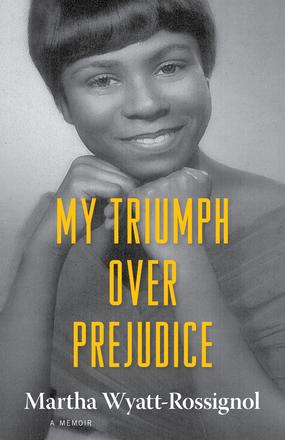
My Triumph over Prejudice
A Memoir
How a black Mississippian navigated a tumultuous childhood, married a white civil rights worker, and rallied to transform her life
Description
My Triumph over Prejudice is the autobiography of a black girl growing up in Mississippi during the civil rights era. Born in 1949, Martha Wyatt-Rossignol came of age during some of the most crucial and dangerous years of the civil rights movement. She examines those years and what happened when the movement upended her small town of Fayette. She describes the conditions under which blacks lived during segregation and how those oppressive rules changed, despite massive resistance from whites.
Wyatt-Rossignol faced racial hatred when she was chosen for an early school desegregation program. Her failed marriage to an African American led to her dating and later wedding a white man, a civil rights worker from the North, to whom she is still married. That union sparked disapproval from both the white and black communities, revealing entrenched complexities of race and racism in her hometown.
Her story also follows the politics of that volatile era in a local context. Black politicians, helped by national civil rights figures, assumed more power and began improving life for all races in this rural area. Then came a betrayal felt by many blacks as these key figures overreached their authority and started pursuing their own selfish agendas. An intimate, revealing portrait of Charles Evers, the first black mayor of Fayette and brother of Medgar Evers, is included in this section. The memoir goes on to portray how the author learned to hate whites as a result of her experiences and how she later overcame that animosity. Wyatt-Rossignol's story concludes with her move out of Mississippi to the island of Bermuda, where she encountered a very different racial environment.
Reviews
"A moving story of love and loss, struggle and triumph, transformation and discovery, My Triumph over Prejudice adds tremendously to our understanding of life in the American South during what was arguably its most turbulent period."
- Curtis J. Austin, associate professor at The Ohio State University and author of Up Against the Wall: Violence in the Making and Unmaking of the Black Panther Party